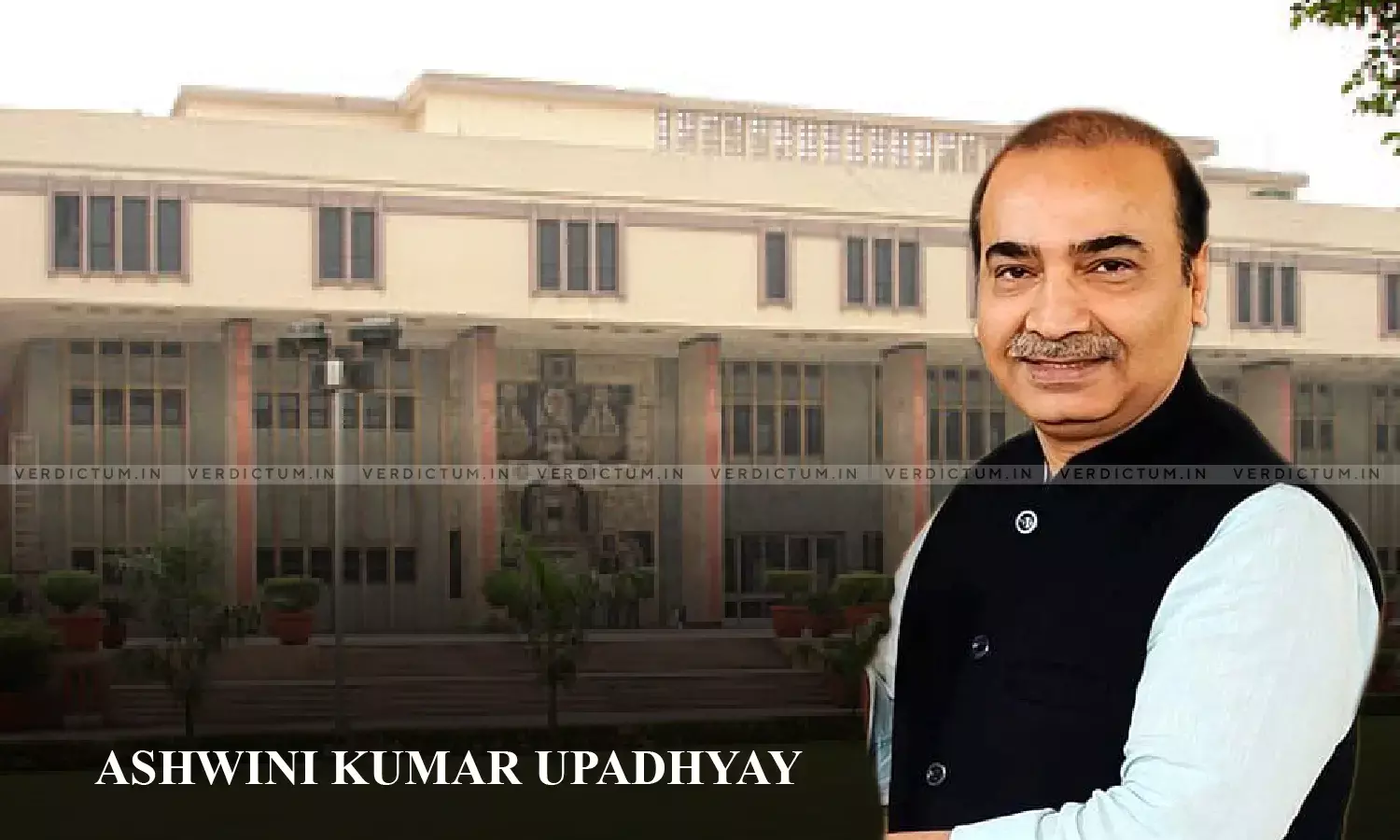We Want To Have Deeper Examination: Delhi HC Adjourns Ashwini Upadhyay's PIL Against Religious Conversions

The Delhi High Court today said that the issue raised in the PIL filed by Advocate Ashwini Kumar Upadhyay is one that requires a deeper examination, while adjourning the case to July 25.
Upadhyay had filed a PIL seeking direction to prohibit religious conversion by intimidating, threatening and deceivingly luring through gifts and monetary benefits and by using black magic and superstition.
The Bench of Justice Sanjeev Sachdeva and Justice Tushar Rao Gedela were reluctant to admit the matter since, according to the Bench, the plea was not backed by sufficient material. The Bench said that data from social media cannot be the basis for approaching the Court.
The Bench said that religious conversions are not prohibited and that people have a right to choose their religion. The Bench then said that forced conversions are a different matter.
The Bench suggested that it is for the Central Government to take action in the matter and said, "You have brought the issue to notice of Centre. It is for them to take action".
Advocate Ashwini Kumar Upadhyay had moved the Delhi High Court contending that "religious conversion by "the carrot and the stick" and "by hook or crook" not only offends Articles 14, 15, 21, 25, but also against the principles of secularism, which is integral part of basic structure of Constitution" and that the "Centre and Delhi Government have failed to control menace of black magic superstition & deceitful religious conversion, though it's their duty under Article 51A."
He has contended that the injury caused to the public is extremely large and that, "Incidents of massive religious conversion are being reported every day as religious conversion is continue by intimidating, threatening, deceivingly luring through gifts and monetary benefits and by using the black magic, superstition, miracles."
He has prayed for a direction to the Centre and Delhi Government "to take appropriate stringent steps to prohibit religious conversion in order to maintain and promote fraternity assuring dignity of individual and unity and integrity of the nation." He also sought a direction to the Center to "ascertain the feasibility of appointing a committee to suggest the changes in Chapter-XV of the Indian Penal Code or to draft a Conversion of Religion Act in spirit of the direction in Sarla Mudgal Case."
The Petitioner has averred in his petition that in 1995, the Supreme Court, in the matter of Sarla Mudgal v. Union of India [(1995) 3 SCC6 635], had directed to ascertain the feasibility of enacting an anti-conversion law, but the Centre did nothing.

